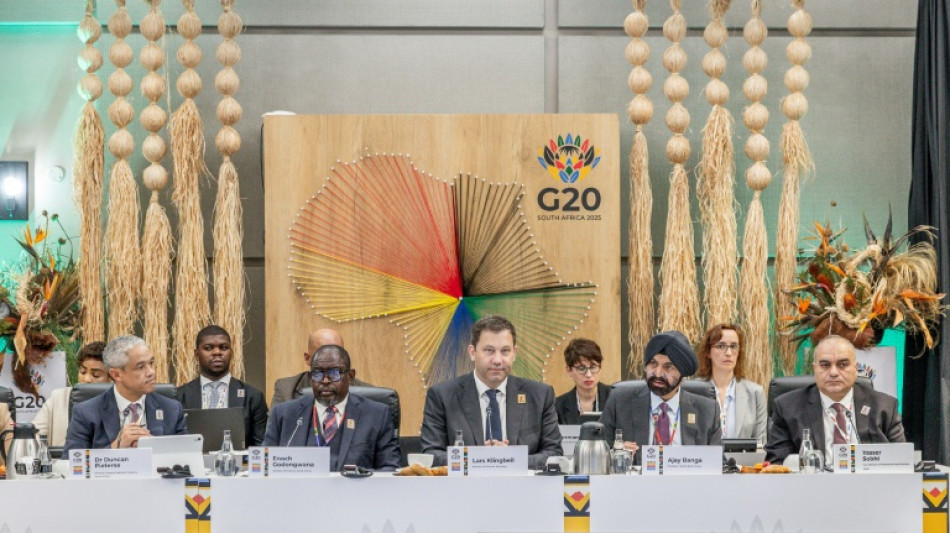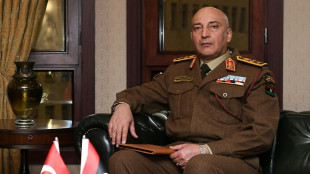

South Africa warns global turmoil threaten development goals
G20 chair South Africa warned Thursday that abandoning the rules-based global order and declining cooperation could derail 2030 development goals to end hunger, eradicate extreme poverty and fight climate change.
The blueprint, adopted by all United Nations member states in 2015, includes 17 targets on areas such as education, climate action and gender equality.
But progress has been uneven and is at risk as the world faces growing uncertainty and mounting threats to multilateralism.
South Africa is chairing the G20 group of nations until November 2025, a complex task that involves coordinating a broad and fractious membership that includes the United States, China, Russia, the European Union and the African Union.
"While inflation is gradually moderating and financial conditions have started to stabilise in some regions, uncertainty continues to weigh heavily on global growth prospects," Pretoria's finance minister Enoch Godongwana told G20 finance chiefs and central bank governors.
"Rising trade barriers, persistent global imbalances and new geopolitical risks are significant concerns," he said.
These challenges, coupled with climate-related shocks, risk pushing the development targets "further out of reach", he added.
The group has scrambled to respond to drastic policy shifts by its richest member, the United States, which has upended global trade rules since Donald Trump's return.
Washington -- next in line for the G20 presidency -- has imposed tariffs on countries it labels "anti-American" and announced foreign aid cuts that are hammering development projects especially in Africa.
- 'Inclusive dialogue' -
US Treasury Secretary Scott Bessent is not attending the two-day meeting in the port city of Durban, with Washington instead represented by an undersecretary for international affairs.
Bessent also skipped a similar meeting in February and US Secretary of State Marco Rubio snubbed a meeting for G20 foreign ministers.
"We have a critical role to play in revitalising and strengthening multilateralism by fostering inclusive dialogue, reinforcing rules-based cooperation, and driving collective action on global challenges that no country can solve alone," said Godongwana.
Germany said it was committed to the course, underscoring the importance of the bloc whose resolutions are non-binding in nature.
"We as the federal government, are using all possibilities... to also discuss how, especially in these times of international upheavals and uncertainty, we can strengthen our partnerships within the multilateral world order," Finance Minister Lars Klingbeil told journalists.
The G20 is made up of 19 nations and two regional organisations and accounts for more than 80 percent of the world's economic output.
K.Bergqvist--StDgbl




